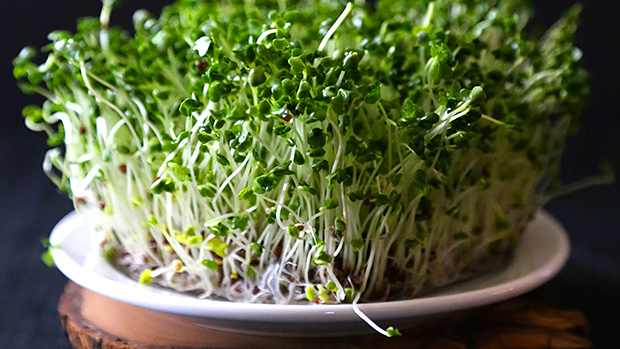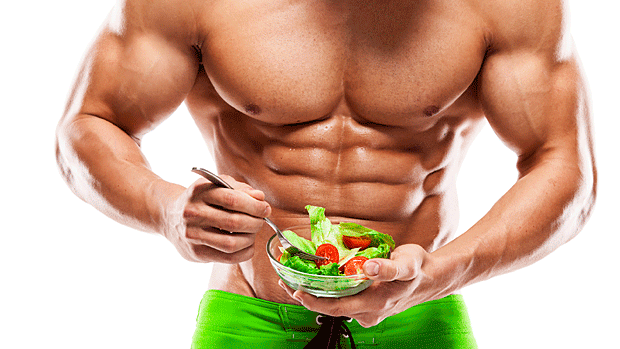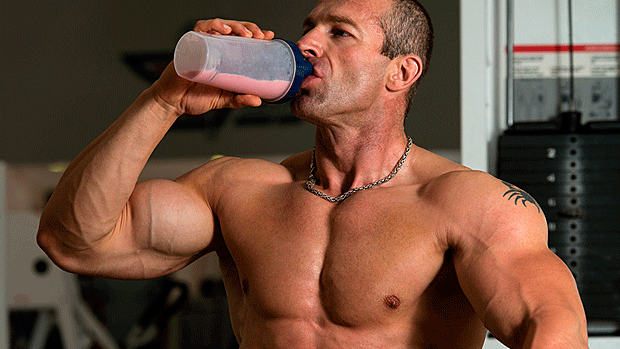Sulforaphane Lowers Glucose by 10%
Keeping blood glucose levels within a healthy range is key to keeping your heart healthy, regulating your hormones, and helping you carve out a great physique. But most of all, you need healthy blood sugar levels to stave off type 2 diabetes. You can control your blood sugar in many different ways, including staying away from the Twinkies, sleeping well, and using certain supplements and herbs.
Now, thanks to a new study, we know that sulforaphane, a compound in cruciferous veggies (broccoli, cauliflower, cabbage, kale, bok choy etc.) helps lower blood glucose levels by 10%.
The Study
The study began with researchers nerding out on rats. They took diabetic rats fed a Western diet (42% not so good fat, and .15% cholesterol), analyzed their livers, and found 1720 genes that were associated with high blood sugar levels.
From here, they cut down those 1,720 genes to 50 linked genes and labeled these genes as being the "disease signature" for high blood sugar.
After submitting these genes to the wrath of specific compounds to see which ones had the greatest effect on turning down the heat on this disease signature, the scientists found that it wasn't some big-name drug or super-special compound that downregulated the genes. Nope, it was sulforaphane, that super smart-sounding compound in the super-basic veggie, broccoli.
First, the researchers found that sulforaphane lowered glucose levels in the cells in petri dishes. Next they stepped up the game and tested rats. Sure enough, sulforaphane improved glucose tolerance in the rats. Would the compound live up to its growing reputation in humans?
- 97 people with type 2 diabetes (some regulated, some disregulated) were divided into two groups.
- Group one was given a placebo once daily. Group two was given high-potency (150 millimoles sulforaphane) broccoli sprout extract once daily. All stayed on current medications (including metformin, a drug for diabetes).
- Baseline blood results were taken, including markers like HbA1c and fasting glucose. After 12 weeks, researchers took blood again.
The Results
- For those who were not obese, nothing really changed. Bummer.
- But for those who were obese, the green stuff lowered glucose levels by 10%, enough to significantly improve that patient's overall health and reduce their risk of complications associated with the disease.
Note: In another study, it was found that rats given glucoraphanin (a precursor to sulforaphane) had an increase in brown fat, which lead to more efficient fat burning. Simply put, the rats given the compound had a weight gain rate 15% lower than the rats not given the compound.

How to Use This Info
While the levels used in the human study were super high and you'd have to eat a ton of broccoli to get the same amount, there is an alternative (until this compound is released on the market).
You know those sprouty things that you sometimes put on your sandwich? Yeah, those are usually broccoli sprouts, and those are where the compound used in the study came from.
Broccoli sprouts have long been a favorite in the granola community, but you don't have to wear Birkenstocks to grow your own. Dr. Rhonda Patrick has made sprouting popular outside hippie circles. Even Joe Rogan interviewed her. Sprouting is simple. You get some seeds. You add water. You wash them twice a day. Bingo, you're on your way to a healthier you.
The sulforaphane in broccoli sprouts not only improve glucose levels, but they have numerous other health benefits, including promising research linking it to being a potent cancer fighter.
What If I'm Not Obese?
Even though the study showed maximum benefit in those who were obese, that doesn't mean that it won't improve your glucose levels. Run an n=1 study on yourself and see if it improves your own blood glucose levels. Regardless, those little green sprinkles you thought just added color to your sandwich may be a hack to whittle away your waistline.
References
- Annika S. Axelsson et. al, "Sulforaphane reduces hepatic glucose production and improves glucose control in patients with type 2 diabetes", Science Translational Medicine 9 (2017): 1-13.
- Tracy Staedter, "Broccoli Compound Could Help Treat Type 2 Diabetes", Live Science, June 14, 2017.
- Naoto Nagata, "Glucoraphanin Ameliorates Obesity and Insulin Resistance Through Adipose Tissue Browning and Reduction of Metabolic Endotoxemia in Mice", Diabetes 66 (2017): 1222-1236.
- "Sulforaphane, a phytochemical in broccoli sprouts, ameliorates obesity", MedicalXPress, March 7, 2017.





